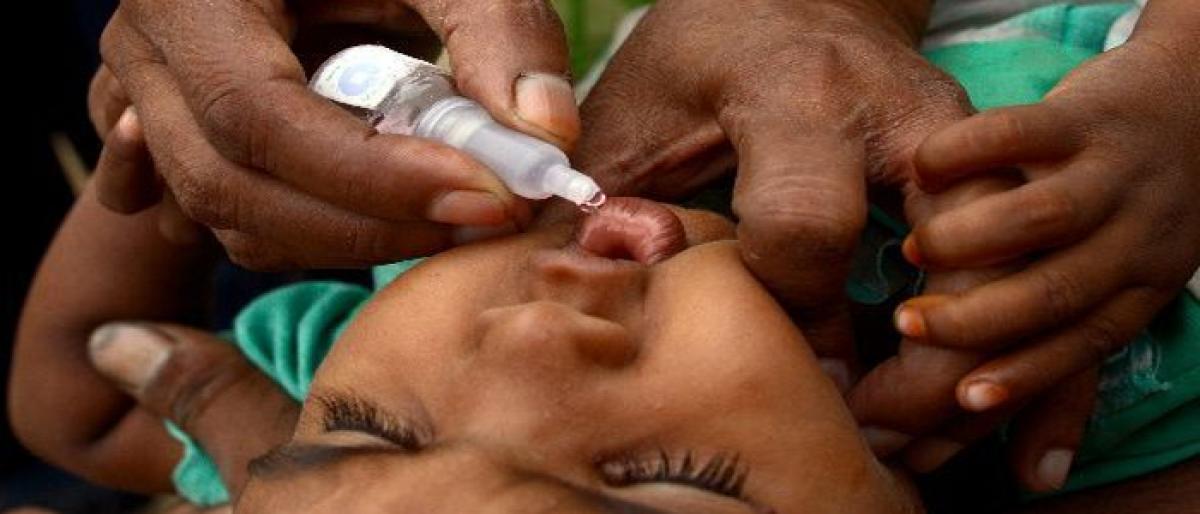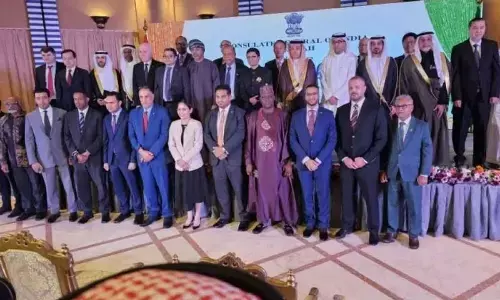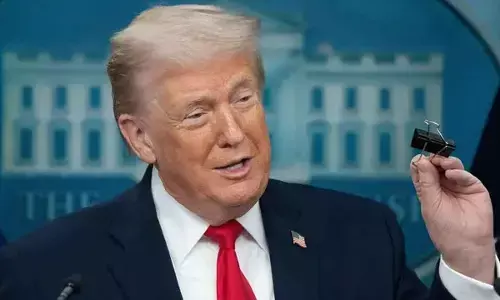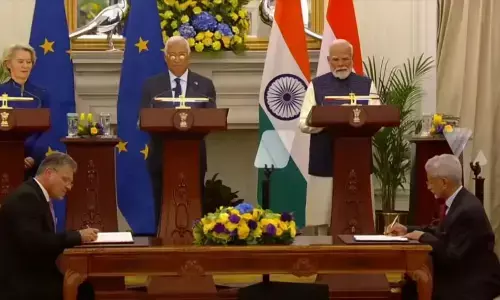5 million unvaccinated children in South-East Asia

Lauding efforts being made by countries to save more and more lives through immunization, including during public health emergencies, the World Health Organization WHO has called for further accelerating efforts to reach the nearly five million unvaccinated children in WHO South East Asia Region
New Delhi: Lauding efforts being made by countries to save more and more lives through immunization, including during public health emergencies, the World Health Organization (WHO) has called for further accelerating efforts to reach the nearly five million unvaccinated children in WHO South-East Asia Region.
“It is critical to identify who are missing vaccination and reach them with lifesaving vaccines. Equity and improving vaccination coverage is the key to preventing resurgence of diseases, especially the ones eradicated with painstaking efforts, and for further reducing diseases and deaths among children,” according to Dr Poonam Khetrapal Singh, Regional Director WHO South-East Asia, inaugurating a three-day meeting of Immunization Technical Advisory Group, here.
The WHO South-East Asia Region records about 37 million births every year, of them over 88% children are now getting three doses of diphtheria, pertussis and tetanus (DPT) vaccines annually, an indicator of basic vaccination coverage.
“Mapping hard-to-reach areas and population, addressing social and cultural and other barriers for them to access immunization services, and closely monitoring these activities for progress, should be among our immediate priorities,” the Regional Director said.
Many countries are making impressive efforts, such as India’s Mission Indradhanush focusing on 190 districts; Indonesia’s intensified drive in 80 districts, Myanmar’s urban immunization intensification targeting 29 townships; Nepal’s efforts to achieve full-immunization at sub-district level; and Timor Leste’s community outreach and twinning programme with Sri Lanka for capacity building of vaccination programme officials.
In Cox’s Bazar, Bangladesh, nine massive vaccination campaigns delivered more than 4.5 million doses of life saving vaccines to the Rohingya refugees. These efforts successfully averted outbreaks of deadly diseases such as cholera and measles and helped rapidly curtail diphtheria outbreak among this vulnerable population.
Growing political commitment, stronger partnerships, and relentless efforts of thousands of health workers and vaccinators, are collectively helping save millions of lives in the Region, Dr Khetrapal Singh said. Member States have added several new vaccines to their immunization schedules such as for protection against pneumonia, diarrhea, Japanese Encephalitis and cervical cancer. Hepatitis B control is getting an impetus with vaccination.
The Region continues to be polio-free and maintains its maternal and neonatal tetanus elimination status. Two countries – Bhutan and Maldives – have eliminated measles, a flagship priority programme of WHO South-East Asia Region. All countries have introduced two doses of measles and rubella vaccines in their immunization schedule. Measles and rubella vaccination campaigns are planned to reach nearly 400 million children and adolescents in 2018-2019.
These intensified efforts need to be enhanced and sustained as we seek to achieve a Region free of vaccine-preventable diseases, where all countries provide equitable access to high-quality, safe, efficacious, affordable vaccines and immunization services throughout the life-course, the Regional Director said.
The Immunization Technical Advisory Group meeting, convened by WHO, is being attended by international experts, representatives of national immunization technical advisory bodies and immunization programme managers of Member States of WHO South-East Asia Region, as well as partners and donors, such as UNICEF, US Centers for Disease Control and Gavi, The Vaccine Alliance.
The Advisory Group will review the ongoing efforts and challenges to reduce the burden of various vaccine-preventable diseases, and explore ways of strengthening routine immunization and achieving measles elimination and rubella control in Member States of the Region.

















